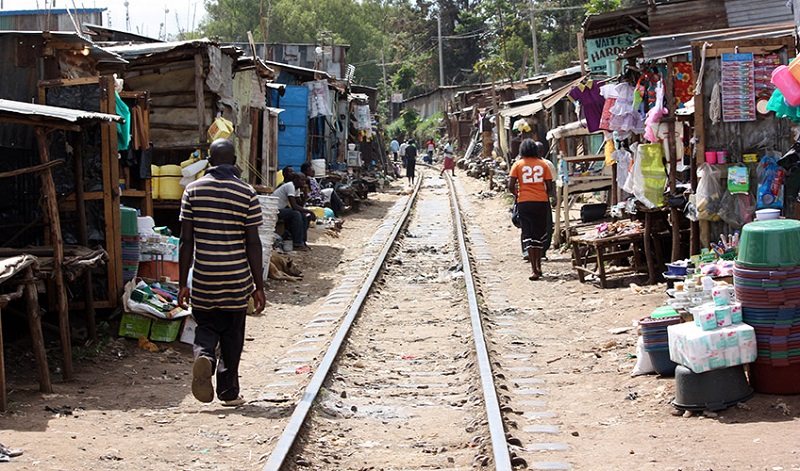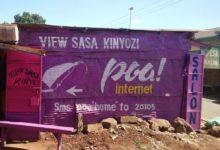British startup Planet Smart City partners with UN-Habitat on slum upgrading initiatives in Mathare and Kibera

Planet Smart City, the British startup revolutionizing smart affordable housing has announced a new partnership with UN-Habitat. Together, they will deliver innovative solutions for slum communities in Kibera and Mathare.
The project is being undertaken under Planet Smart City’s Participatory Slum Upgrading Programme (PSUP),a partnership initiative of the African Caribbean and Pacific group of States Secretariat, the European Commission, and UN-Habitat. Planet will use its expertise in technology, data analytics and community engagement alongside UN-Habitat’s technical expertise on slum upgrading to deploy digital and on-the-ground solutions that empower slum communities to coordinate locally-led initiatives and raise living conditions.
Since 2008, the PSUP has been working to achieve the Sustainable Development Agenda, in particular Sustainable Development Goal 11.1, which aims to ensure access for all to adequate, safe and affordable housing and basic services, and upgrade slums by 2030. This partnership will use the broad experience of the PSUP in slum upgrading and gather lessons learnt from leveraging private sector engagement for improving the living conditions of one billion slum dwellers worldwide.
At the heart of the initiative is Planet’s proprietary Planet App, a mobile platform that will act as a digital hub for community engagement. Through the app, slum residents will be able to access news and services, including materials for the prevention of diseases, as well as book medical point services, and borrow shared tools and equipment. Moreover, the app will serve as a platform for local coordination, allowing residents to organise community initiatives, participate in savings groups, and view a calendar of activities and educational courses.
Core to the long-term goal of realising financial independence for slum community members, the Planet App will also be deployed to support local entrepreneurship, providing a platform for residents to coordinate and promote their services both within their communities and to the wider area around the slum. It can also be used to link slum community members to employment and training opportunities in Nairobi.
Through this partnership, Planet will also support communities to develop a community hub where events and activities can take place.
Planet and UN-Habitat will work in collaboration with local partners, community champions, and NGOs such as Shining Hope for Communities (SHOFCO) and Slum Dwellers International (SDI), to collect and analyse data on the needs of local residents. This will allow the organisations to engage collaboratively with local people on the design and implementation of new community services and resources.
Data analysis and the tailoring of the app will be supported by the PSUP team on-the-ground in coordination with Planet’s experienced Community Manager, Elena Fabris. Their aim will be to engage local people and more effectively empower their initiatives utilising digital tools. This participatory approach will allow the slum communities to evolve according to local priorities and with a high degree of community ownership.
“We have built our company on two core beliefs: the fundamental right of every person to an inclusive, safe and sustainable home, and the conviction that through the adequate scale, smart technology, digitalisation, resilient infrastructure and intelligent urban planning, we can make this a reality. From Brazil to Italy to India, we have not only developed innovative ways to benefit the lives of our residents, we have learnt from them about how better to engage and empower local voices in a process of continual improvement.” Giovanni Savio, Chief Executive Officer at Planet Smart City, said.
“It is incredibly exciting to put our learnings to use with UN-Habitat in the service of communities for whom our innovations and expertise can have a transformational effect. With African cities growing by 40,000 people every single day, the need for safe, comfortable and affordable homes is pressing. As we continue to build insights into the rich communities and complex challenges across the continent, we hope to expand the services we can offer people in its many diverse nations,” he added.
Alan Marcus, Chief Digital Strategy Officer at Planet Smart City, said: “Africa is in the midst of one of the world’s most exciting technological metamorphoses, with Kenya right at the heart. The country is already the world leader for mobile money penetration, and connection to mobile services has surged from 30% of the population in 2009 to over 50% last year.* The forces of innovation that are transforming lives in both Kenya and across the continent can be harnessed to empower the people of African nations. All of us at Planet are energised by the prospect of working with UN-Habitat to ensure this digital revolution in Africa is an inclusive one. Slum communities are tight-knit, resourceful and brimming with potential – if we give them the tools, these communities can be the catalysts for real and long-term transformation.”
Kerstin Sommer, Manager of the UN-Habitat Participatory Slum Upgrading Programme, said: “With the Covid-19 momentum, we all need to play a part for a bigger mission to improve the living conditions of the most vulnerable in our cities. That won’t work without the contribution of the private sector.”
Featured Image credits: Mutemi Nesta Alexander
Follow us on Telegram, Twitter, Facebook or subscribe to our weekly newsletter to ensure you don’t miss out on any future updates.


